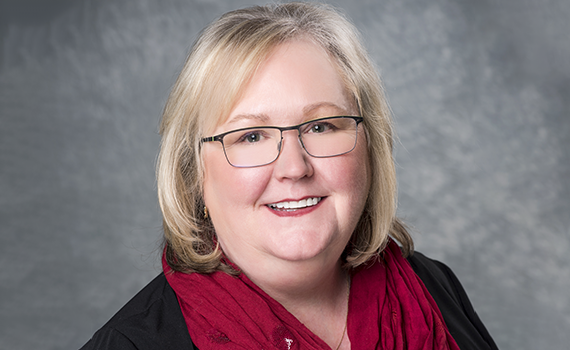 Peggy Blood, MSN, RN
Peggy Blood, MSN, RN
A new book promises to be a comprehensive guide for care teams who manage patients receiving mechanical circulatory support (MCS). A Guide to Mechanical Circulatory Support: A Primer for Ventricular Assist Device (VAD) Clinicians (2022, Springer) is co-edited by Peggy Blood, MSN, RN, who works in the Department of Mechanical Support for the UAB Cardiovascular Institute.
MCS involves the use of complex machines that take over the pumping function of the left or right ventricle of the heart to keep a patient alive. These heart pumps are also known as ventricular assist devices (VADs). The purpose of the new book is to provide a foundational education in all aspects of MCS.
Authored by multiple clinicians with extensive expertise in the field, the book covers the history of MCS, VAD design and function, surgical and post-operative care, mobility and nutritional issues with MCS, and outpatient management. It also covers regulatory, reimbursement, and administrative issues, along with information on developing an MCS program.
The book includes links to professional organizations supporting MCS clinicians that should be of great value to nurses, advanced practice providers, dietitians, physical therapists, and administrators. Contributing authors from UAB include Keaton Lloyd, MSN, RN, CNL, manager of mechanical circulatory support programs, and Dawn Lowery, MS, RDN, LD, clinical nutrition manager for UAB Food and Nutrition Services.
Active in Her Field
Co-editor Peggy Blood earned her MSN from the UAB School of Nursing in 1990, then she joined the advanced heart failure/heart transplant team the same year as a cardiothoracic transplant coordinator. As the clinical nurse specialist in the UAB Heart and Lung Transplant ICU, Blood created the VAD coordinator role and – with physician colleagues – formed the VAD program at UAB Medicine.
Blood’s current responsibilities include administering UAB Medicine’s durable VAD, extracorporeal membrane oxygenation (ECMO), and acute circulatory support programs. She has presented nationally and internationally and authored numerous peer-reviewed publications on MCS therapy outcomes. She was instrumental in establishing the International Consortium of Circulatory Assist Clinicians (ICCAC) in 2007 and later served as a board member, treasurer, and president.
“Because of UAB Medicine’s world-renowned clinicians and the cutting-edge medical care we provide, I have had opportunities to both learn from and teach others who have an interest in mechanical circulatory support,” Blood says. “This book provides a foundation for clinicians interested in learning about the multidisciplinary clinical care and administrative needs required to provide expert care to the VAD patient.”